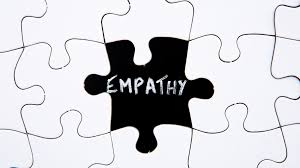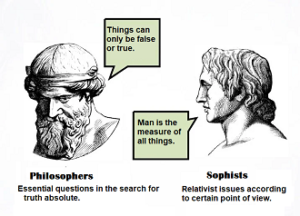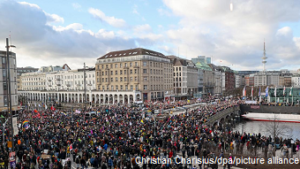
Arquivo para a ‘Social Network’ Categoria
What is the Good?
This is the question that Aristotle begins to develop in his ethics (The Nicomachean Ethics): “It is generally admitted that every art and every investigation, as well as every action and every choice, have some good in view; and for this reason it has been said, with great accuracy, that the good is that to which all things tend” Aristotle (1991, p. 2).
to develop in his ethics (The Nicomachean Ethics): “It is generally admitted that every art and every investigation, as well as every action and every choice, have some good in view; and for this reason it has been said, with great accuracy, that the good is that to which all things tend” Aristotle (1991, p. 2).
Plato’s idea of the Highest Good, which is closer to an idea of the divinity of the “World of Ideas” (he divided the world into the sensible world and the world of ideas) and Aristotle’s idea of the Good, as the idea of a choice in both art and research, presuppose that this was the choice for the social and political life of the Greek polis, which would lead to the balance of politics.
This was in contrast to the world of the sophists, where all logic and choice was for power and the possession of earthly goods, so Aristotle indicates that when he talks about ethics, he is talking about human ethics.
The author reminds us that both he and Plato established themselves on principles and were not subject to mere rhetoric and the justifications of power: “Plato had raised this question, asking, as he used to do: ‘Does our path start from first principles or does it lead towards them?’ (Aristotle, 1991, p. 5).
It is this loss of principles, and the relativism that results from it, that causes contemporary thought to lose its way about what the Good is and even what happiness is. Both Plato and Aristotle don’t lose sight of it, but they know that happiness depends on life in the polis.
Thomas Aquinas in the early Middle Ages did not define the good, but he knew that it also started from principles or what he called “primary notions”, he says: “since the good moves desire, we describe it in this way as everything that desires” and as such it can approach the good or distance itself from it.
When we see the good in this way, we can use an Aristotelian and Thomist category of seeing the good as a final cause, as a perfection to be attained.
Love for our brothers and sisters, universal brotherhood, is not a “theory”, but an end to be achieved.
*In Aristotle, causes are: material: what makes up the object or being, formal: the physical and conceptual form of the object or being, efficient cause: what makes the object or being, and final cause: what the object or being is for.
Aristotle. Ética a Nicomaco (Nicomachean Ethics). translated by Leonel Vallandro and Gerd Bornheim, Brazil: NOVA CULTURAL 1991 (Coleção os Pensadores).
Middle East and Eastern Europe in tension
After threatening to suspend the truce that began on January 19, Hamas accuses Israel of violating the agreement, this weekend three more hostages of the extremist group were returned in exchange for hundreds of prisoners, the hostages were displayed on a stage in the city of Khan Yunis, in southern Gaza (photo).
began on January 19, Hamas accuses Israel of violating the agreement, this weekend three more hostages of the extremist group were returned in exchange for hundreds of prisoners, the hostages were displayed on a stage in the city of Khan Yunis, in southern Gaza (photo).
The three hostages: Israeli-American Sagui Dekel-Chen, Israeli-Russian Sasha Trupanov and Israeli-Argentinian Yair Horn, had been with Hamas since October 7 last year, the fateful terrorist attack.
The situation is tense because the American government does not accept the Hamas group’s governance in the region and is putting all kinds of pressure on the region to remain neutral.
In Eastern Europe, American policy is to consider that Ukraine will not be able to recover the territories lost in the war and is forcing a peace agreement with new borders, threatening to withdraw any support, but it is not without Russian advances in Europe. At the Arctic Pole, the Russian presence is notable, and forces from Canada, the USA, Denmark and Norway are already moving there.
Europe is not completely abandoning Ukraine, because it knows that Russia may not stop there, and has already threatened the Baltic countries, Moldova and Poland.
Last week, drones hit Chernobyl, and it seems that the drones were sent by Russia, hitting the central protection shield.
This Sunday (02/16) France declared that it would host a summit of European leaders this Monday (17) to discuss the war in the east and the security of Europe and seeks to respond to the unilateral approach of President Trump, who uses the policy of what is not good for the US does not concern him.
In all this spectrum of tensions and threats, there is always a background of hope for peace, for a return to common sense and for allowing peoples to live in peace, being able to cultivate their roots and their culture without xenophobia and wars.
The logic of the hater
The word is at the center of heated discussions, expressions of anger and little empathy, the logic of “me” first has entered all circles, from family to politics.
expressions of anger and little empathy, the logic of “me” first has entered all circles, from family to politics.
The translation into Portuguese would be “hater”, but given how little this word is used in Portuguese, I believe that hater will end up being nationalized, and by the way, many people don’t like the use of words like meeting, coach and open house or home-office (in Brazil not translate), although many people use them, but we have examples from the past: abajour (from French, lampshade used in Brazil), software (from English, not translate in Brazil), sauerkraut (German) and schoppen (which became chope in Brazil “draft beer”, from German) and which has nothing to do with shopping, it is to buy.
We need to avoid “hater”, “bullying”, which leads to a type of moral harassment, as well as the meme, which if used in its origin (it comes from the Greek mimesis) would be a basic unit of cultural transmission, which means imitation, but which has been transformed into a malicious analogy, for example, a certain public figure as an animal.
At the root of all this cultural perversion is not the introduction of new words into the spoken language, which in itself is not evil, but done in an evil way it becomes some kind of cultural intimidation, which leads to prejudice and hence violence.
At the root of all this cultural perversion is not the introduction of new words into the spoken language, which in itself is not an evil, but done in a malicious way it becomes some kind of cultural intimidation, which leads to prejudice and hence violence.
It’s not just a lack of empathy, it’s respect for what’s different, it’s the desire to include the Other. Various authors have written about this (Paul Ricoeur, Emmanuel Lévinas, Habermas, Todorov, Martin Buber, etc.) No contemporary philosophy worthy of the name should fail to address this issue, after all it’s a “being” of a world in common, so Being-in-the-world becomes a “being-with-the-others” in a shared world (mitwelt).
This change in behavior begins in the heart and soul of the “dasein”, where Heidegger’s clearing can open up in the midst of a dense and dark forest.
Not looking at the Other with its dignity (Ricoeur wrote “other”, Buber wrote “the sacred self”) is different from the I-that that much of philosophy also explores.
The purified heart empathically accepts the Other as a form of its Being.
Mitigated war and distant peace
Both the Gaza Strip and Ukraine are being mitigated, the two main wars and the most threatening of a total war. The expectation of peace from the Trump administration has not materialized, what he wants is a Roman pax, that is, the rule of the vanquished.
mitigated, the two main wars and the most threatening of a total war. The expectation of peace from the Trump administration has not materialized, what he wants is a Roman pax, that is, the rule of the vanquished.
The current US government is negotiating rare earths with Ukraine in exchange for equipment. These earths are expensive and are used both in camera lenses and telescopes, for greater visual precision, and in oil refining, in a process called cracking.
Ukraine’s president, Volodymyr Zelensky, said on Friday (February 7) that he was willing to make this deal in exchange for support for the war. The region near the Dnipro River is rich in this ore, and reveals the true interests of the war, in addition to Ukraine’s strong grain production.
In the Gaza Strip there was another prisoner exchange, on Saturday (February 9) three people kidnapped by Hamas were exchanged for 183 Palestinian prisoners. The return of the Israelis didn’t end the drama, because when they arrived they discovered that their relatives had been killed in the October 7 attack that started the conflict.
Trump’s plan for Israel, however, is the domination of the Gaza Strip region, where the Palestinians consider their territory, was hailed by Netanyahu as “revolutionary”, while for the Palestinians it means the continuation of the conflict and the constant threat within their borders.
On Sunday (02/09) the complete withdrawal of Israeli troops was announced the complete withdrawal of Israeli troops from the so-called Netzarim corridor, which divided the Gaza Strip in two, allowing displacement from south to north (photo).
Trump is pursuing a policy of taxation, a veritable trade war, saying he will announce tariffs of 25% on aluminum and steel imported by the country today, the decision affects Brazil, the Ministry of Development, Industry, Trade and Services (MDIC) said it will not comment.
The US withdrawal from the WHO (World Health Organization) was also announced, followed by Argentina. Trump accuses the Organization of diverting funds to other purposes and using these funds politically, contrary to American interests.
Trade with China and Russia has also been shaken. Yesterday, the Baltic countries of Estonia, Latvia and Lithuania completed the migration of Russia’s electricity grid to the European Union system, ending Soviet-era ties and seeking greater security for the countries.
The scenario is one of war mitigation and could escalate at any moment, but the hope of building a sustainable peace has not been abandoned, and forces in the Arab world and Europe are still seeking diplomatic solutions to these brutal wars.
Economic interests are at stake, above political ones. Tempers are out of control not only in the countries at war, but everywhere there is polarization.
The return to serenity, the awareness that in war everyone loses, and those who lose the most.
Urgent: the Islamist group accused Israel of violating the ceasefire by attacking civilians trying to return to the north of the Gaza Strip and Israel put its forces on high alert.
Wisdom and changing course
Among the virtues is wisdom. In times of disconnected narratives and little knowledge, countless sages of half-truths emerge, prophets with impure hands and lives, and there is an audience to applaud them.
disconnected narratives and little knowledge, countless sages of half-truths emerge, prophets with impure hands and lives, and there is an audience to applaud them.
So it is necessary to despise wisdom, to read little, to trivialize what is good and beautiful, to violate even the simplest reasoning about the preservation of life, justice and the dignity that every human being possesses, and it is no coincidence that the word of 2024 was “brainrot”.
Not just because we bombard our brains with bad food, but mainly because we abandon good reading, good culture and the good faith of someone who has really changed course.
The biblical figure who made this radical change of course, and was a wise man with great knowledge of Judaism and Greek culture, is Saul of Tarsus, who was born in this city in Cilicia in the year 5 AD and was initially a great persecutor of Christians, being held responsible for the death of Stephen, the first Christian martyr.
He had a mystical vision of Jesus asking “why are you persecuting him” and was blinded on his way to Damascus (photo). Whether this was a metaphor or not is not the important thing, he was told to go and meet the Christian Ananias, where his sight was restored.
Blindness made him go beyond the limits of Jewish traditions, even with controversies such as the discussion with Peter about circumcision, but the Bible itself reminds us that we have eyes and cores that are uncircumcised (*Dt 10,16) and this explains the blindness of Saul, now transformed into Paul.
He will be important for the change in mentality that leaves the Jewish realm and goes to the Greeks and Romans, without him perhaps Christianity would remain a Jewish sect, and his wisdom deeply influenced Augustine of Hippo and Thomas Aquinas, important thinkers for Christian thought and there is no denying the need for wisdom.
The religion of precepts, which excludes many and doesn’t allow many people to change course, is in rapid decline, and this applies to culture in general, with an urgent need for a spirituality that encourages true asceticism.
It’s not emotions, well-crafted and even elaborate speeches that provoke a “change of route”, but a clear awareness of the human and spiritual needs of our time.
It is not uncommon for those who propose these speeches to call for exclusion, for social disruption and see in this a “prophetism” that cannot be achieved by impure hands.
What is divine is transparent and clear, it comes with serene and clear language, with attitudes that prove a change of course, without example any speech is empty even if it excites and provokes emotions.
*Deuteronomy 10,16: “Circumcise therefore the foreskin of your heart, and be no longer stubborn.”
Ethical, moral and cardinal virtues
Ethics are important for good social interaction and for the proper functioning of human relationships in the social context. They should be the basis for those who today challenge moral relationships and distance them from the cardinal virtues, due to their religious origins.
interaction and for the proper functioning of human relationships in the social context. They should be the basis for those who today challenge moral relationships and distance them from the cardinal virtues, due to their religious origins.
Some principles are considered central to ethics, such as autonomy, beneficence or non-maleficence (speaking badly or bearing false witness) and justice, which should be the basis for good social relations.
In times of moral relativism, political relativism is once again a topic. Perhaps we need to return to classical Greek principles in order to bring some serenity to today’s social debate.
Aristotelian ethics was centered on the pursuit of happiness and human well-being, through virtue (areté) and moral development.
The Greek areté means both virtue and excellence, and Plato and Aristotle’s quest was to form “upstanding” citizens who could strengthen society morally, and overcome politics, which until this time was strongly influenced by the sophists, discursive arguments that favored the powerful regardless of their attitudes.
Relativism was born there, seeking only to justify power through argumentation, and the strong similarity with today’s narratives indicates that some fissure in the political stance is spreading in modern democracy.
The ancient Greeks had to overcome relativism in order to arrive at democracy, they argued that moral values and truths could not be relative to historical and social contexts.
Plato’s Theaetetus is considered to be one of the first texts to address the confrontation between truth and relativism, and it would be great to re-study it for today’s politics, how much relativism !!!
The cardinal virtues must be seen as a complement, without them we will not achieve true fraternity and unity of peoples, love is emptied by the current vulgarization, we have already discussed the English philosopher Philippa Foot (1920-2010) clearly addressed the gap that exists in contemporary morality of the cardinal virtues: courage, prudence and temperance (to be more serene, how much this is lacking today) in addition to justice that is partially addressed.
Without the cardinal virtues we find it difficult to include and live in peace with everyone.
Nationalism, fear and war
It’s not the first time in history that fear has taken hold of society, various mental illnesses such as depression and panic disorder have appeared, and societies seem to be closing in on each other, much to everyone’s surprise. Germany, always so far ahead, has seen the advance of the AfD (Alternative for Germany), which is the return of the ultra-right.
taken hold of society, various mental illnesses such as depression and panic disorder have appeared, and societies seem to be closing in on each other, much to everyone’s surprise. Germany, always so far ahead, has seen the advance of the AfD (Alternative for Germany), which is the return of the ultra-right.
The problem of immigration in Germany has now come to the fore, under the protest slogan “we are the cordon sanitaire”, when it happened an anti-immigration motion and a narrow vote on the Migration Flow Act, criticized the candidate for German Federal Chancellor, Friedrich Merz, of the Christian Democratic Union (CDU), led to demonstrations across the country.
The candidate is the front-runner to take over the German government in the February 23 election, although he is conservative and distances himself from the AfD’s ultra-conservative pretensions.
The significance of these movements, laws and the growth of increasingly conservative positions is a reaction to the sense of the crumbling of the civilizational roots of the various societies and a growing movement of moral and political deterioration of social institutions.
This is not a comfort zone, but a “safety zone” in the face of the ever-present threat of an unprecedented civilizational crisis, and without an element of peace and hope that can mitigate these processes of unrestrained changes in customs.
Fear is when the moral reserves of hope and faith in the future shrink, both on a personal and social level. Young people who prefer to shut themselves away and stay “hidden” at home are a reflection of this “safety zone”, while those who go out abandon any limits.
In addition to combating extremism, the forces of peace must also sow peace and hope and reduce frontal attacks on extremism, which only strengthen it.
Not being afraid is also an important ingredient in these “battles”, showing serenity and calmness in the face of adverse situations helps to minimize the effects of intimidation and harassment that characterize extremist forces, they feed on fear and violence.
The true nuclei of hope are inclusive, they are not motivated by provocations or narratives that defend their positions as the only true ones, it is not about relativism, but about enlightenment and deactivating the fear that characterizes the most closed societies.
Only peace between peoples can guarantee the hope of a healthier and more fraternal world for all.
Provisional peace in Israel and difficult in Ukraine
They continue in the footsteps of the Hamas/Israel agreement, on Thursday (01/30), 8 hostages were released, 3 Israelis and 5 Thais, in exchange for 110 Palestinian prisoners. Hamas will release the list of the total number of hostages, but Israel continues to attack Hezbollah positions in Lebanon.
Hamas/Israel agreement, on Thursday (01/30), 8 hostages were released, 3 Israelis and 5 Thais, in exchange for 110 Palestinian prisoners. Hamas will release the list of the total number of hostages, but Israel continues to attack Hezbollah positions in Lebanon.
The press has released few details about peace in Ukraine. It is known that there are movements behind the scenes, and that part of the agreement would be the return of Russian gas to Europe, after penalizing the Russian economy with sanctions, and the supply of gas is one of them, with the recent blockade of the passage of Russian gas through the war territory.
Keith Kellogg, Trump’s envoy to negotiate peace between Ukraine and Russia, said in an interview on Friday (01/31) that the end of the war could happen in months.
There, the tactic has been to bomb Russian refineries inside Russian territory, while Russia destroys Ukraine’s energy sources, remembering that gas is also used in Europe for heating and we are in the middle of winter.
On the diplomatic front, Russia maintains influence in neighboring countries such as Georgia, Serbia (not without protests) and unstable Bulgaria. According to former EU Commissioner Mariya Gabriel, due to corruption, she should have been prime minister, but Dimitar Glavchev took over as interim.
It is unlikely that an agreement will be possible without Ukraine ceding part of its territory to Russia, and the hidden issue in the agreements is the growing provocations, now with Russian ships carrying atomic cargo approaching Norway (photo), which is a NATO member. Although the ship has maintained maritime rules, there is suspicion about its true functions, such as placing equipment that can cut maritime communication cables on the ocean floor.
There are behind-the-scenes conversations; the Trump administration is committed to achieving peace while at the same time continuing to send ammunition to Ukraine, which has begun to attack Russian territory and made the war more intense and escalating.
In last week’s posts, we highlighted the functions of language, and it is no longer neutral language; even international mediating forces are forced to make decisions between the parties in dispute; voices for true peace are muffled in the name of partial narratives.
Language and evil
Human language is as complex as man himself, so without a vision of Being in its complexity (it is onto-logical) and without an accurate understanding of linguistic functions (see previous post) we make the mistake of understanding that the logic coming from media and devices overrides human logic and can “control” reality.
so without a vision of Being in its complexity (it is onto-logical) and without an accurate understanding of linguistic functions (see previous post) we make the mistake of understanding that the logic coming from media and devices overrides human logic and can “control” reality.
Wittgenstein, in his Tractatus Logico-Philosophicus, reinforces the idea that: “language is a garment that disguises thought. And indeed in such a way that one cannot infer from the outer form of the garment the form of the thought clothed in it, because the outer form of the garment has been constituted for purposes entirely different from making the form of the body recognizable” (Wittgenstein, proposition 4002).
This is also true of metalanguage, where the digital media is the garment (not the network, because it is a network of relationships), it is dressed up to omit the purposes for which many people use it, but the problem is not only socio-political, it is also moral and ethical.
This omission in language allows linguistic acts to be carried out with absolute immorality despite “freedom”; it is much more than a simple expression in “clothing”; it is a way of corrupting and destroying core values of the civilizing process.
Separating what is good from what is evil based on the garment is also a tricky task, as one cannot make common mistakes: preventing free expression, discerning the intentions hidden in the “garment” and, above all, to discern the intentions hidden in the “garment” and above all to defend the “foundations” of truth.
Truth is ontological and does not follow common logic, it aims to respect the being, their dignity as a person, the right to basic freedoms and especially the right to life, today under a rather confusing “garb” of rights to death, where war and exclusion are the main ones.
Language itself, as an everyday expression of communication, is being abused and deteriorated more and more every day, to the point of making it difficult to even achieve what was already the achievement of millennia of civilization: communication between two people and in narrative´s time the evil is more present in bad communication.
You can’t separate the evil that lies under the guise of “words” and linguistic use, without paying attention to structural truths that date back millennia in the civilization process: the right to Be (life), the right to freely express one’s ideas and principles, the right to come and go and the right to make choices that don’t harm these rights of each Other.
You don’t get good from evil, and what is present in language must be purified.
Wittgenstein, Ludwig. (2023) Tractatus Logico-Philosophicus. Brazil: Criciúma, SC: Editora Convivium, 1ª. edição eletrônica.
Society in bubbles
The question of the Other has arisen in philosophy as a result of a self-centered philosophy coming from extreme rationalism, which exploits exacerbated hedonism, utilitarianism as a way of life and economy, in a society of rights without duties, where what goes for me doesn’t go for the Other.
philosophy as a result of a self-centered philosophy coming from extreme rationalism, which exploits exacerbated hedonism, utilitarianism as a way of life and economy, in a society of rights without duties, where what goes for me doesn’t go for the Other.
Philosophical authors such as Paul Ricoeur (cited even by the Pope), Emmanuel Lévinas and Martin Buber, who comes from a Jewish philosophy, speak of this existential emergency that is the relationship with the Other, but our closed circles try to establish narrative half-truths that are only valid for our bubbles.
The essential existential question of who is the Other, Martin Buber, in The I and the Thou, comes to see the most sacred in the Other and the question is, in a way, in Peter Sloterdijk’s Spheres I, where he says that children seem to be born with a kind of “instinct for relationships”? which develops throughout the book the idea that we are not born alone and, therefore, through cooperative work and language, we should socialize, and bring out this inner instinct for the relational.
Sloterdijk rejects the liberal, idealistic principle of Cartesian origin, where the isolated individual seeks his existential reason. He starts from an ontology where the primitive is always Two, but if we include the divine that Buber saw, we are three.
But he’s not so idealistic as to say that these two are fused, we could say using Gadamer’s concept, who sees in the “hermeneutic circle”, a “fusion of horizons”, and so we can think of the individual who comes out of the placenta, which will then be dead, as coming out of their primordial bubble, and finding themselves somewhat separated from their mother.
The pre-modern world had a model, for which this separation was not total, of remaining in subjectivity or intimacy (not the interiority that does not separate), this can be seen in some peoples who planted the placenta like trees, and others, like the Egyptians who made pillows, and in the tombs of the pharaohs were buried with them, as if to remain in the initial existential bubble.
We are thus seen in the self-sufficiency of the liberal model, but this model is also criticized, for example, by Rousseau, who sought an isolated life of non-thinking, see as in the experience of the lake, in his writing of the daydreams of the solitary walker, compatible with his model of the man of the good savage, on which many modern democracies are inspired, Rousseau was the contractualist of the most liberal model.
Even the hope of regaining a “general will”, in a stronger state, where a kind of “national religion” is proclaimed, which today erupts in nationalisms all over the planet, is nothing more than a contemporary vision of a self-sufficient “bubble” of various kinds of social closure in ‘communities’, but with a selfish principle inside, what Sloterdijk calls an “inflated community”, social media are just “means” where these ideas of bubbles are propagated.

